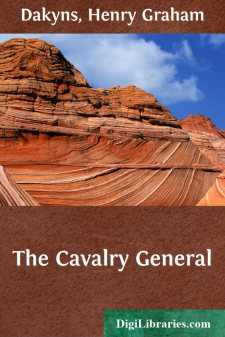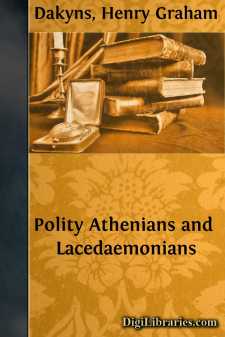Categories
- Antiques & Collectibles 13
- Architecture 36
- Art 48
- Bibles 22
- Biography & Autobiography 813
- Body, Mind & Spirit 142
- Business & Economics 28
- Children's Books 14
- Children's Fiction 11
- Computers 4
- Cooking 94
- Crafts & Hobbies 4
- Drama 346
- Education 46
- Family & Relationships 57
- Fiction 11828
- Games 19
- Gardening 17
- Health & Fitness 34
- History 1377
- House & Home 1
- Humor 147
- Juvenile Fiction 1873
- Juvenile Nonfiction 202
- Language Arts & Disciplines 88
- Law 16
- Literary Collections 686
- Literary Criticism 179
- Mathematics 13
- Medical 41
- Music 40
- Nature 179
- Non-Classifiable 1768
- Performing Arts 7
- Periodicals 1453
- Philosophy 64
- Photography 2
- Poetry 896
- Political Science 203
- Psychology 42
- Reference 154
- Religion 513
- Science 126
- Self-Help 84
- Social Science 81
- Sports & Recreation 34
- Study Aids 3
- Technology & Engineering 59
- Transportation 23
- Travel 463
- True Crime 29
The Cavalry General
Description:
Excerpt
Commander of Cavalry at Athens
IYour first duty is to offer sacrifice, petitioning the gods to grant you such good gifts (2) as shall enable you in thought, word, and deed to discharge your office in the manner most acceptable to Heaven, and with fullest increase to yourself, and friends, and to the state at large of affection, glory, and wide usefulness. The goodwill of Heaven (3) so obtained, you shall proceed to mount your troopers, taking care that the full complement which the law demands is reached, and that the normal force of cavalry is not diminished. There will need to be a reserve of remounts, or else a deficiency may occur at any moment, (4) looking to the fact that some will certainly succumb to old age, and others, from one reason or another, prove unserviceable.
(1) For the title, etc., see Schneid. "Praemon. de Xeno." {Ipp}.
Boeckh, "P. E. A." 251.
(2) Or, "with sacrifice to ask of Heaven those gifts of thought and
speech and conduct whereby you will exercise your office most
acceptably to the gods themselves, and with..." Cf. Plat.
"Phaedr." 273 E; "Euthr." 14 B.
(3) The Greek phrase is warmer, {theon d' ileon onton}, "the gods
being kindly and propitious." Cf. Plat. "Laws," 712 B.
(4) Lit. "at any moment there will be too few." See "Les Cavaliers
Atheniens," par Albert Martin, p. 308.
But now suppose the complement of cavalry is levied, (5) the duty will devolve on you of seeing, in the first place, that your horses are well fed and in condition to stand their work, since a horse which cannot endure fatigue will clearly be unable to overhaul the foeman or effect escape; (6) and in the second place, you will have to see to it the animals are tractable, since, clearly again, a horse that will not obey is only fighting for the enemy and not his friends. So, again, an animal that kicks when mounted must be cast; since brutes of that sort may often do more mischief than the foe himself. Lastly, you must pay attention to the horses' feet, and see that they will stand being ridden over rough ground. A horse, one knows, is practically useless where he cannot be galloped without suffering.
(5) Lit. "in process of being raised."
(6) Or, "to press home a charge a l'outrance, or retire from the field
unscathed."
And now, supposing that your horses are all that they ought to be, like pains must be applied to train the men themselves. The trooper, in the first place, must be able to spring on horseback easily—a feat to which many a man has owed his life ere now. And next, he must be able to ride with freedom over every sort of ground, since any description of country may become the seat of war. When, presently, your men have got firm seats, your aim should be to make as many members of the corps as possible not only skilled to hurl the javelin from horseback with precision, but to perform all other feats expected of the expert horseman. Next comes the need to arm both horse and man in such a manner as to minimise the risk of wounds, and yet to increase the force of every blow delivered....












